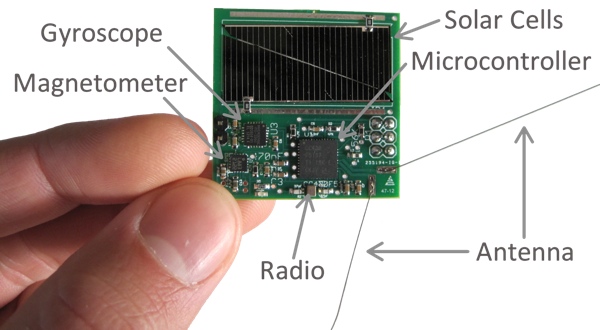 On Friday March 10th, Zac Manchester, Founder of the KickSat project and Postdoctoral Fellow of Harvard, visited TU Delft and gave a talk about the KickSat project, crowdsourcing the World’s Smallest Spacecraft. Zac initiated the KickSat project as an outgrowth of his Ph.D. research at Cornell, where he developed the electrical, mechanical, and communications systems underlying the Sprite. The project has the goal of dramatically reducing the cost of access to space and has included participants from all over the world. KickSat was financed through the crowd-funding website Kickstarter and awarded a launch through NASA’s ELaNa Program.
On Friday March 10th, Zac Manchester, Founder of the KickSat project and Postdoctoral Fellow of Harvard, visited TU Delft and gave a talk about the KickSat project, crowdsourcing the World’s Smallest Spacecraft. Zac initiated the KickSat project as an outgrowth of his Ph.D. research at Cornell, where he developed the electrical, mechanical, and communications systems underlying the Sprite. The project has the goal of dramatically reducing the cost of access to space and has included participants from all over the world. KickSat was financed through the crowd-funding website Kickstarter and awarded a launch through NASA’s ELaNa Program.
Zac founded the KickSat project in 2011 with the dual goals of engaging the public in spaceflight and advancing the technologies needed to enable low-cost ChipSat missions. At the heart of the project is the Sprite, a 3.5-by-3.5 centimeter printed circuit board spacecraft with a mass of 4 grams. Sprites are capable of collecting measurements from a variety of sensors and communicating directly with ground stations from low-Earth orbit using a code division multiple access (CDMA) communication scheme. To launch and deploy these tiny spacecraft, a CubeSat “mothership” that can accommodate over 100 Sprites has also been developed.
In addition to highlighting the engineering challenges associated with KickSat, he discussed several of the ways in which the project has engaged the “Maker” community and the broader public. People from around the world participated in crowdfunding, setting up ground stations, and even mission operations. He also shared some results from recent flight experiments and discussed the upcoming KickSat-2 mission.